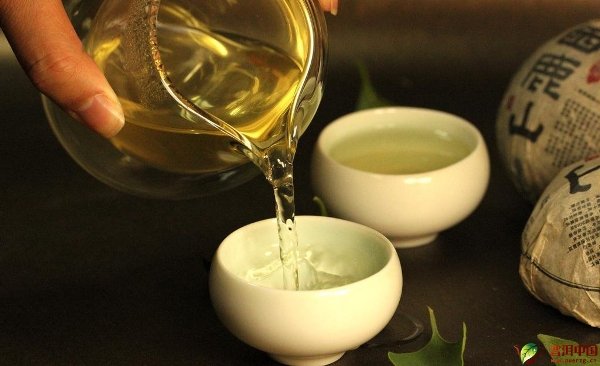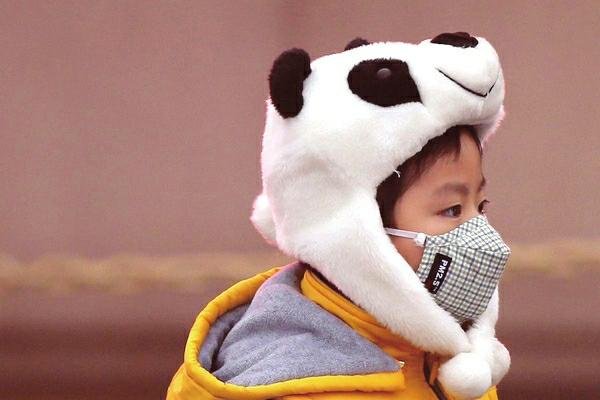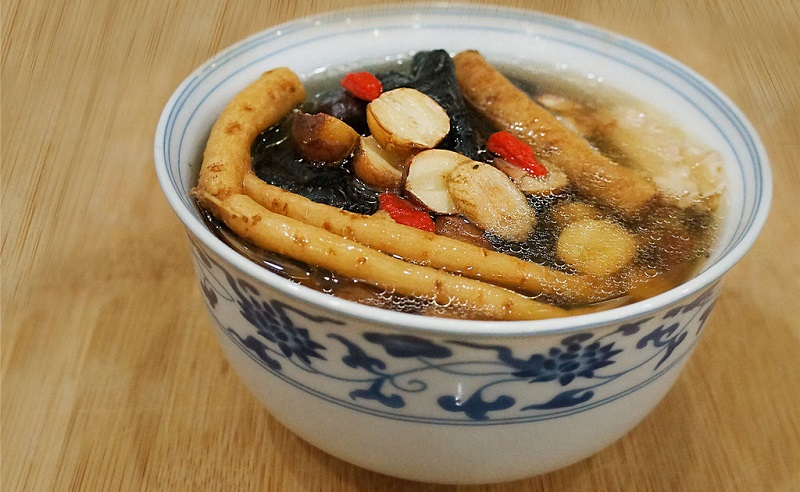A leading expert in Chinese traditional medicine (TCM) says "anti-smog teas" are not a reliable method of dealing with China's numerous severe smog attacks.
Liu Quanqing, president of the Beijing Hospital of Traditional Chinese Medicine, recently told a CCTV report that herbal teas can not effectively counteract the harmful effects of air pollution and recommended consumers not to purchase such "misleading" products
"I've looked at many formulas. They all contain ingredients that are medicines and can't be used as food, which may cause health problems if taken for a long time," said Liu.
Liu said a single prescription can not be routinely applied to every person with the same result, and said that prolonged exposure to any medicinal tea can have adverse effects.

Liu also said foods like kelp, radish and wood-ear fungus are similarly ineffective against alleviating health conditions brought on by smog.
Liu defended his position by explaining the food we eat doesn't affect the way we breathe because digestion and breathing are two separate bodily systems. Liu distinguished food as being digested and absorbed in our digestive systems, while PM 2.5 particles enter our respiratory system through our noses.
Of course, his opinion is not shared universally amongst TCM practicitioners; in fact, The Paper detailed how one university in Henan distributed anti-smog tea to all its students after a particularly bad stretch of polluted days at the beginning of January.
Though it was billed to students as "smog prevention medicine"预防雾霾中药“ the university later clarified to position to journalists. "To say that it prevents the negative effects of air pollution is maybe not the correct way of phrasing it. Actually this concoction is meant to relieve the symptoms of respiratory distress that air pollution causes," one representative said.
Winter is commonly the most polluted time of the year in China, during which the annual heating season takes place. And like last year, high emissions have resulted in smog red alerts issued for a number of Chinese cities, thereby raising public awareness of potential health risks.
But the awareness only goes so far. Because air masks and air purifying machines may be an seen as a "luxury" item, some people have turned to traditional Chinese medicine as a relatively inexpensive alternative.

Traditional Chinese medicine differs from Western medicine in that it takes a holistic approach towards treating patients, and aims to help provide a healthy lifestyle in which illnesses are prevented.
It is with this approach that gave rise to the mass appeal of anti-smog tea. Instead of "immunizing" against the harmful effects of pollution, these teas are touted as supplements that can help people better deal with smog.
Anti-smog teas are advertised as being able to "cleanse lungs" and "moisten throats", thereby easing the expectoration of phlegm that contains harmful pollutants absorbed by the body.
Anti-smog teas can be found in Chinese pharmacies including Beijing's famous Tongrentang franchise. Containing ingredients like honeysuckle, forsythia and licorice, the lable on the product reads "may alleviate conditions of the lungs and respiratory system affected by air pollution."
As well, anti-smog teas can be found online. On the Kangmei health products website, a box containing 12 packets of Shanghetang anti-smog tea sells for 54 yuan.

The idea of using traditional Chinese medicine to counteract the harmful effects of air pollution has been often supported in Chinese media. QQ ran articles on various anti-smog teas that readers can make for themselves at home, as has iFeng. Meanwhile, Sohu ran an article earlier this month suggesting that eating mangosteen can help alleviate asthma symptoms during smoggy days.
Furthermore, Chinese social media has been instrumental in perpetuating anti-smog teas. Last month, an anti-smog tea prescription went viral after exploding in popularity in Xi'an online social circles. Zhao Dingya attributed the success of his prescription to it being inexpensive, easy to make, and suitable for the mass majority of people (except pregnant women).
This isn't the first time a TCM expert has spoken out against promoting herbal teas that can counteract the harm of air pollution.

Last month, Xinhua quoted Zhengzhou Traditional Chinese Medical Institution director Bai Mingxue as saying anti-smog teas are not effective, calling such products "fundamentally flawed." Bai even went on to debunk the common belief that expectorating phlegm is a proper way to rid the body of pollutants, saying the practice is "ineffective against contaminants at the size of PM 2.5."
In addition to that, NetEase ran an article calling such products "unreliable" back in November 2015.
But if anti-smog tea won't help, what can you do?
From the perspective of traditional Chinese medicine. Liu suggests maintaining good eating habits and a strong immune systems are the best way to counteract fog.
More stories from this author here.
Images: CQ News, Dagou, km1818, Sohu, lshou, NetEase, Huaxi, puerzg
